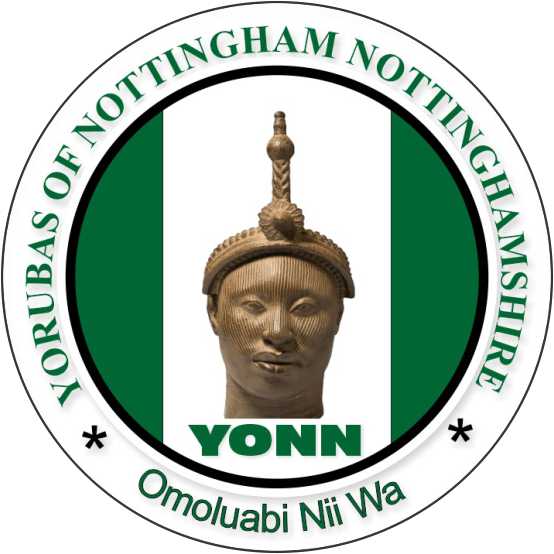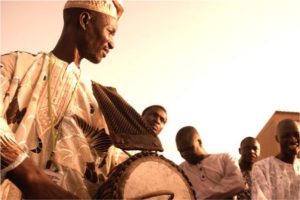ÌBÀDÀN LỌ MON Ọ́Ọ̀ MON LAYIPO
Have you heard the proverb, Ìbàdàn lọ mon ọ́ọ̀ mon Layipo?
It is the spiral stair-case of the Bower’s Tower that is referred to in local parlance as “Layipo”. Because it was obviously the first spiral stair-case in all of South-West, Nigeria. To get to the top of the Tower you have to climb the stairs, and because it’s spiral, it’s looked like turning around around to Yorùbá people then. The act of turning around “yípo” birthed “Ọláyípo” as local name to Bower’s Tower.
Bower’s Tower was erected to immortalize Captain R.L Bower.
This was not the only place so changed. For examples, that it’s same Ìbàdàn people who turned Father Padre Mountain to “Òkè Páádi” and too dirty” – allegedly said by a white man to “Kudẹti”. The locals seemed have culture of changing foreign words to what their tongue would find more convinient.
Bower’s Tower was a wonder then. People must had trooped there in order to behold ‘Tower’ and its stair-case that makes one ‘turn around and around’. It must have been like pilgrimage in those days. It finally become a saying “Ìbàdàn lọ mọ, ọ ọ mọ Layípo” (You have only been to Ibadan, but you have not been to Bower’s Tower)
One point of correction is that, this saying didn’t originally mean it nowadays usage to mean that Ìbàdàn people are very deceptive.
Who Was Captain R.L Bower?
Did you read my work, ‘Òwu Kingdom: Genesis, Prosperities and Extinction’? If not, please try. Captain Bower come after Òwu Kingdom fell.
Captain R. L. Bower was one of the officers of the 7th Battalion King’s Royal Rifles and part of the force of the British Punitive Expedition that pacified the ìjẹ̀bú in 1892 when they subjugated Ìjẹ̀bú-Òde and opened up the way to the Yorùbá hinterlands which hitherto had been closed, because the Ìjẹ̀bú did not allow non-indigenes to enter not to talk of passing through their country, thus ending the age-old saying “Ìjẹ̀bú-Òde, àjèjì o wọ” meaning “Ìjẹ̀bú-Òde, a place that is that strangers must not enter”
After successfully participating in the pacification of the Ìjẹ̀bú, Captain Bower was appointed as the first Ajelẹ (Resident) of Ìbàdàn.
He arrived Ìbàdàn in 1893 with a force of about 100 soldiers. The Ìbàdàn authorities wanted to assign him a place within the city-walls for residence, but he marched through and took up his quarters outside the city walls in the area known as Ìdí Ogungun, (do-do-mi) where he set up his camp. The place where he set up camp on that day became the Residency and since then it has been the seat of Government for the South-West and it is now the seat of the seat of the Ọ̀yọ́ State Government. Thus one can see that the seat of the Ọ̀yọ́ State Government is located in the place where it is today because Captain Bower chose to settle at Idi Ogungun, and since then subsequent District Officers, Residents and Governors continue to have Idi Ogungun as their seat of government.
Though it is now known as Agodi, the whole of the area used to be known anciently as Idi Ogungun.
Remember Ìdí Ogungun? The place where Allied Forces camped during attacks at Òwu Kingdom.
Now this is the part I find interesting:
After setting up his camp at Idi Ogungun the first act of governmental administration which Captain Bower did was to issue a proclamation to the effect that henceforth all slaves have become free and they could leave their master’s establishment to go to their respective homes and that nobody should ever be referred to as slave anymore upon pain of condign punishment.
Thus Captain Bower, the man of destiny, unwittingly fulfilled the ancient prophecy that had been extant ever before he was born: “Onínúrere Idi Ogungun tí ì s’ẹrù d’ọmọ” (the kind hearted man of Idi Ogungun who will make slaves to become like free-borns)
He is currently immortalized by a tower erected in his memory at Oke-Are, which is called Bower’s Tower.
The Ogungun tree after which the area was named is still standing there, and the area within the immediate vicinity of the three is still called Idi Ogungun, the name it has been bearing since more than 200 years ago. This same Idi Ogungun has been the theatre of many events in the history of Ìbàdàn. For an example, the confederate army of Ìfẹ́, Ọ̀yọ́ and Ìjẹ̀bú which destroyed the city of Òwu were using Idi Ogungun as their camping ground. From there they used to sally forth to lay siege to the city of Òwu. Òwu was finally captured when the people of Òwu opened their city gates to the confederate army when they had no more food to eat.
The city of Òwu Kingdom which then comprised of the areas now known as Bashọrun, Iwo Road, Monatan up to her boundary with the sister Owu town of Erunmu was then very close to Idi Ogungun.
Developed from:
1. ‘Captain Bower, Idi-Ogungun and The Establishment of Colonial Seat of Power in Ìbàdàn’ by Daniel Ayodele Adeniran (on Facebook)
2. Òwu Kingdom: Genesis, Prosperities and Extinction’ by Jimoh Taofik Adekunle
3. History of Yoruba by Samuel Johnson
4. Ìwé Ìtàn Ìbàdàn àti àwọn àgbègbè rẹ by (Ọba) Isaac Akinyẹle


